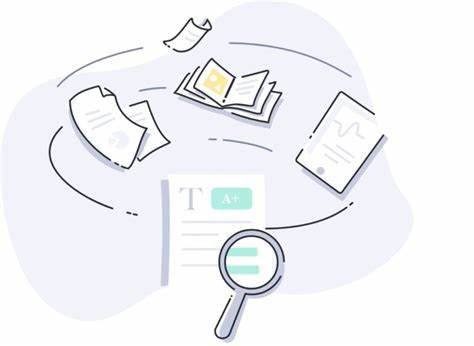Table of Contents
- Introduction
- Understanding Plagiarism in Research and Academia
- Definition of Plagiarism
- Types of Plagiarism
- Consequences of Plagiarism
- Academic Consequences
- Professional Repercussions
- Reasons for Plagiarism
- Lack of Knowledge
- Time Constraints
- Pressure to Perform
- Importance of Ethical Writing
- Practices to Avoid Plagiarism
- Proper Citation and Referencing
- Paraphrasing and Summarizing
- Organizing Research Notes
- Understanding Free Plagiarism Checkers
- How Do Free Plagiarism Checkers Work?
- Limitations of Free Plagiarism Checkers
- Dangers of Using Free Plagiarism Checkers
- Unreliable Results
- Security and Privacy Risks
- Alternative Solutions for Plagiarism Detection
- Paid Plagiarism Checkers
- Academic Integrity Services
- Educating Researchers and Students about Plagiarism
- Workshops and Training
- Developing Original Writing Skills
- Encouraging a Culture of Integrity
- Conclusion
- FAQs
Introduction
In the realm of research and academia, ethical writing practices are paramount. One of the most significant challenges researchers and students face is avoiding plagiarism. Plagiarism can have severe consequences, tarnishing one’s academic and professional reputation. To maintain academic integrity, it is essential to explore ethical writing practices and steer clear of the temptation to utilize free plagiarism checker online.
Understanding Plagiarism in Research and Academia
Definition of Plagiarism
Plagiarism refers to the act of using someone else’s ideas, words, or work without proper acknowledgment. In research and academia, it is considered a breach of ethical standards.
Types of Plagiarism
Plagiarism can manifest in various forms, including direct copying, paraphrasing without citation, self-plagiarism, and citation manipulation.
Consequences of Plagiarism
Academic Consequences
Plagiarism in academic settings can result in failing grades, course expulsion, or even dismissal from the institution.
Professional Repercussions
In the professional world, plagiarism can lead to loss of credibility, career setbacks, and damaged relationships with peers.
Reasons for Plagiarism
Lack of Knowledge
Some individuals may unintentionally plagiarize due to a lack of understanding of proper citation practices.
Time Constraints
The pressure to meet tight deadlines can tempt individuals to take shortcuts, leading to accidental plagiarism.
Pressure to Perform
The intense competition in academia and research can push individuals to plagiarize in an attempt to outperform others.
Importance of Ethical Writing
Maintaining ethical writing practices fosters trust, credibility, and originality in research and academic work.
Practices to Avoid Plagiarism
Proper Citation and Referencing
Citing sources accurately and comprehensively gives credit to original authors and prevents plagiarism.
Paraphrasing and Summarizing
Expressing ideas in one’s own words, while still crediting the source, helps to avoid direct copying.
Organizing Research Notes
Effectively organizing research materials reduces the likelihood of unintentional plagiarism.
Understanding Free Plagiarism Checkers
How Do Free Plagiarism Checkers Work?
Free plagiarism checkers scan text against online sources to identify potential similarities.
Limitations of Free Plagiarism Checkers
Free checkers may not detect all forms of plagiarism and can yield false positives.
Dangers of Using Free Plagiarism Checkers
Unreliable Results
Relying solely on free checkers can lead to inaccurate results, potentially overlooking instances of plagiarism.
Security and Privacy Risks
Free online tools may compromise the security and privacy of sensitive academic work.
Alternative Solutions for Plagiarism Detection
Paid Plagiarism Checkers
Investing in premium plagiarism checkers offers more comprehensive and accurate results.
Academic Integrity Services
Institutions can utilize integrity services that promote original writing and prevent plagiarism.
Educating Researchers and Students about Plagiarism
Workshops and Training
Conducting workshops and training sessions enlightens individuals about the significance of ethical writing.
Developing Original Writing Skills
Encouraging the development of original writing skills reduces the temptation to plagiarize.
Encouraging a Culture of Integrity
Promoting a culture of integrity and academic honesty reinforces the importance of ethical writing.
Conclusion
Ethical writing practices are the foundation of academic and research integrity. By understanding the various aspects of plagiarism and embracing ethical writing practices, researchers and students can foster a culture of originality and knowledge creation. Instead of relying on free plagiarism checker online that may be unreliable, invest in reputable plagiarism detection tools or academic integrity services. Free plagiarism AI checkers scan text against online sources to identify potential similarities.
By doing so, we contribute to the growth and advancement of knowledge in a responsible and ethical manner.
FAQs
- Can plagiarism occur unintentionally?Yes, plagiarism can happen unintentionally when individuals fail to properly attribute the sources they use.
- Are free plagiarism checkers completely ineffective?Free plagiarism checkers can provide some assistance, but they may not detect all instances of plagiarism and can yield unreliable results.
- What are the consequences of self-plagiarism?Self-plagiarism involves reusing one’s own previously published work without proper citation. Consequences can include damage to one’s reputation and academic misconduct.
- How can institutions promote academic integrity?Institutions can promote academic integrity through awareness campaigns, workshops, and incorporating ethics education into the curriculum.
- What should I do if I suspect someone has plagiarized my work?If you suspect plagiarism, gather evidence and report the incident to the relevant academic authorities for investigation and appropriate action.
Read more: Click here



